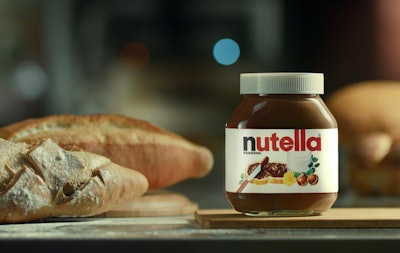
The maker of Nutella spread recently took to the airwaves in its native Italy to defend its use of palm oil after European authorities raised concerns that it contained elevated levels of a carcinogen.
Officials with Ferrero told Reuters this week that its production processes limit the substance in question and that changing its formula would raise costs and compromise the iconic chocolate and hazelnut spread.
"Making Nutella without palm oil would produce an inferior substitute for the real product," Ferrero purchasing manager Vincenzo Tapella told the publication.
The European Food Safety Authority warned last year that palm oil, when refined at high temperatures to eliminate color and aroma, generates a higher levels of glycidyl fatty acid esters.
The contaminant, commonly known as GE, is considered a possible carcinogen, and the findings prompted companies and groups across Italy to limit or call for bans on palm oil.
Ferrero, however, countered that its palm oil is processed at just less than 200 degrees Celsius and at low pressure. The system takes longer and costs more, but officials said that scientific instruments had trouble identifying GE.
The company ran an ad touting the safety of its ingredients, which featured Tapella, for the past three months.
That move — the most vocal by a major food company in Europe — could be a boon to the global palm oil industry, particularly after years of criticism from environmental advocates that the industry also led to deforestation.
"It is good that Ferrero has clarified that the palm oil they use is safe and sustainable," Yusof Basiro, head of the Malaysian Palm Oil Council, told Reuters. Malaysia and neighboring Indonesia produce the bulk of the world's palm oil supply.
The EFSA did not suggest that consumers should avoid palm oil in last year's findings, which mirrored conclusions from the World Health Organization and a United Nations agency. Reuters noted that official guidance from the European Commission is expected this year, and that although it could limit the GE, a ban is unlikely.






















